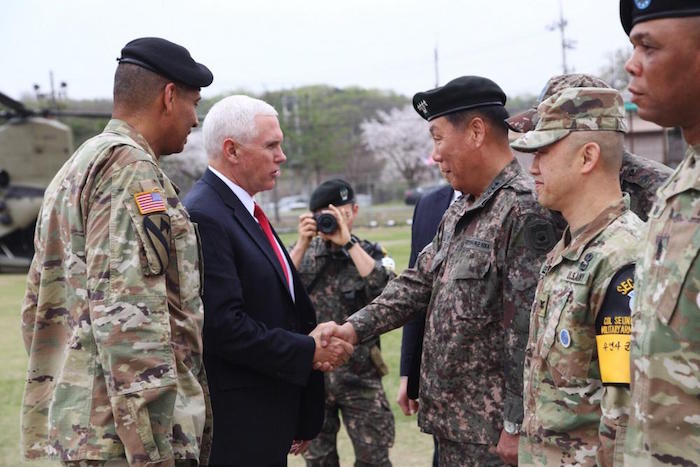North Korea and the Art of the Deal
 When: Thu., Mar. 22, 2018 at 6:30 pm - 8:00 pm
When: Thu., Mar. 22, 2018 at 6:30 pm - 8:00 pmWhere: Asia Society and Museum
725 Park Ave.
212-288-6400 Price: Members $20; Students/Seniors $30; Nonmembers $40
Buy tickets/get more info now
See other events in these categories:
Kim Jong Un’s headlong pursuit of nuclear missiles capable of striking the continental United States has put North Korea on a collision course with the U.S. and its allies, alienated China, and frightened the world. With tensions flaring, diplomacy is widely seen as the best tool to avert another bloody conflict on the Korean Peninsula. Secretary of State Rex Tillerson has said that the U.S. is “ready to talk any time…without preconditions,” but President Trump cautioned him not to “waste his time.” On New Year’s Day, North Korea abruptly offered talks with the South in conjunction with the Olympics, but ruled out any discussion of its nuclear weapons.
Past negotiations have achieved limited, but transitory success. In 1994, as tensions on the Korean Peninsula reached a crisis point, Robert Gallucci negotiated a landmark “Agreed Framework” deal with North Korea that halted its plutonium enrichment program and allowed UN inspectors into the country. A decade later, after the revelation of a secret North Korean uranium-based nuclear program, Christopher Hill helped negotiate a Six-Party Joint Statement between six countries, which combined a North Korean commitment to abandon its nuclear program with an American security guarantee not to attack or invade North Korea.
Why were these diplomatic efforts ultimately unable to compel Pyongyang to relinquish its nuclear program? What is it really like to negotiate with North Korean officials? Is diplomacy a viable option for dealing with a nuclear armed millennial dictator?
Join the Asia Society Policy Institute (ASPI) for a special program with two distinguished diplomats who have each negotiated key agreements with North Korea: Ambassadors Robert Gallucci and Christopher Hill. The discussion will be moderated by ASPI’s Diplomat in Residence Daniel Russel, who has dealt extensively with the North Korea challenge in his career as a U.S. diplomat. Given their extensive firsthand experience, the panelists are uniquely qualified to discuss lessons learned from previous diplomatic initiatives and review the prospects and pitfalls of negotiating with North Korea in 2018.
Buy tickets/get more info now
